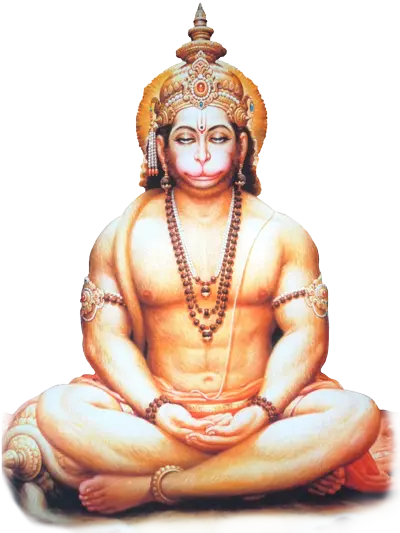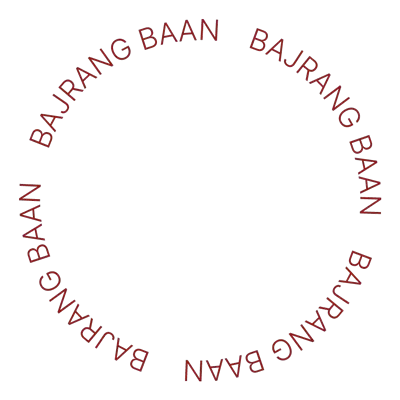
Past life karma refers to the energy that you have carried over from previous lifetimes, which can influence your thoughts, beliefs, and behaviors in this life. By exploring and understanding your past life karma, you can gain deeper insights into yourself and your path, and learn how to release any negative patterns or energies that may be holding you back.
The karma doctrine and its results in our lives
The Law of Karma is a fundamental principle in Hinduism, Buddhism, and other Eastern spiritual traditions. It is based on the belief that every action we take, whether positive or negative, creates an energetic vibration that will ultimately determine our destiny and the circumstances of our future lives.
According to the Law of Karma, every action we take generates an energetic "seed" or "imprint" that will eventually bring about a corresponding result or consequence. Positive actions, such as acts of kindness, generosity, and compassion, generate positive karma and bring about positive results, while negative actions, such as harmful deeds, negative thoughts, and destructive behaviors, generate negative karma and bring about negative results.
The Law of Karma teaches us that we are responsible for our own destiny, and that our thoughts, words, and actions have a powerful impact on our lives and the world around us. It encourages us to live with mindfulness, compassion, and awareness, and to seek to cultivate positive karma through our thoughts, words, and deeds.
Ultimately, Karmic Astrology teaches us that we are all interconnected, and that our actions have a ripple effect that can influence the lives of others as well as our own. It encourages us to live with a sense of responsibility and accountability, and to seek to create positive change in the world through our actions and intentions.
Past Life Karma Calculator
karma is a complex and multifaceted concept that cannot be easily quantified or measured. Past life karma is influenced by a wide range of factors, including past actions, thoughts, and emotions, as well as the interplay of individual and collective karma.
An online past life calculator gives hints about your past actions by inferring the positions of different planets in the birth chart. The calculator may offer some general insights or guidance, but they should not be relied upon as a definitive source of information about your past lives or karma.
Instead of relying on a calculator or external tool, it is often more beneficial to work with a qualified astrologer or practitioner who can help guide you through a deeper exploration of your past life karma and its potential impact on your current life. An astrologer can help you understand the complexities of karma, identify patterns and themes in your past lives, and work with you to develop a plan for healing and growth.
What is karma correction?
Karma correction refers to the process of identifying and addressing negative patterns or imbalances in one's karma, in order to bring greater harmony and balance to one's life. It is based on the belief that every action we take creates an energetic "seed" or "imprint" that will eventually bring about a corresponding result or consequence.
Past Life Karma correction can involve a range of practices, including meditation, energy healing, spiritual counseling, and self-reflection. It may also involve making changes in one's thoughts, behaviors, or relationships in order to create more positive and harmonious energy in one's life.
The goal of karma correction is to help individuals identify and release any negative patterns or energies that may be holding them back, and to cultivate positive karma through actions, thoughts, and intentions that align with their highest good. This can lead to greater clarity, purpose, and fulfillment in one's life, as well as a deeper sense of connection to oneself and others.
It's important to note that Previous Life Karma and its correction is not about erasing or changing past actions or karma, but rather about taking responsibility for one's current karma and working to create a more positive and harmonious future. It is a journey of self-discovery and self-improvement that can lead to profound growth and transformation.
What are the different types of Karma?
In Hinduism, Buddhism, Jainism, and other Indian religions, karma refers to the concept of cause and effect that governs the universe. There are several types of karma, including:
-
Sanchita Karma: This refers to the sum total of all the actions (both good and bad) that an individual has accumulated in their past lives. It is like a storehouse of karma that is carried over from one life to another.
-
Prarabdha Karma: This is the portion of one's sanchita karma that is ripe and ready to be experienced in the current life. It is like a seed that has already been sown and is now bearing fruit.
-
Kriyamana Karma: This refers to the actions that an individual is currently performing, which will contribute to their sanchita karma in the future.
-
Agami Karma: This refers to the future karma that will result from the actions that an individual is currently performing. It is like a bank account into which one is depositing good or bad karma.
-
Vartamana Karma: This refers to the actions that an individual is performing in the present moment, which will have an immediate impact on their life and the lives of others.
The different types of karma are interconnected and influence one another, shaping the course of an individual's life and determining their future experiences. By understanding the nature of karma and taking responsibility for their actions, individuals can work towards creating a more positive and fulfilling future.
Types of Karma in Astrology
In addition to these types of karma, astrology also recognizes the concept of planetary karma, which is the karma in Vedic astrology that an individual inherits from their ancestors and is reflected in the positions of the planets in their birth chart. Planetary karma can influence an individual's life in a variety of ways, including their personality traits, strengths, weaknesses, and life experiences.
Understanding the different types of karma in astrology can help individuals gain insight into their past and present experiences, as well as provide guidance for creating a more positive and fulfilling future. By working to balance and harmonize their karma, individuals can overcome obstacles and challenges, and lead a more joyful and purposeful life.
Is karma different than Fate
Yes, karma and fate are different concepts. Karma refers to the concept of cause and effect, and how the actions and intentions of an individual can shape their future experiences. It is believed that the karma that one accumulates through their actions and thoughts can create a cycle of positive or negative consequences that can extend into future lives.
On the other hand, fate refers to the idea that events and circumstances are predetermined and cannot be changed. It is often associated with the concept of destiny, where an individual's life path and experiences are believed to be preordained by a higher power.
While both karma and fate are linked to the idea of cause and effect, they differ in their focus and implications. Karma emphasizes personal responsibility and the power of individuals to shape their own future through their actions, while fate emphasizes the role of external forces in determining an individual's life path.
In summary, karma is the result of an individual's actions and intentions, while fate is the idea that events and circumstances are predetermined and cannot be altered by individual action.
How do I fix my bad karma?
Fixing bad karma requires a combination of self-reflection, personal responsibility, and conscious action. Here are some steps that you can take to begin correcting your bad karma:
-
Identify the source of your bad karma: Begin by reflecting on the negative patterns and experiences in your life. Consider the actions, thoughts, and intentions that may have contributed to these experiences. Acknowledge your mistakes and take responsibility for your actions.
-
Practice self-awareness: Develop a greater awareness of your thoughts, emotions, and actions. Monitor your behavior and attitudes, and make an effort to be more mindful and compassionate in your interactions with others.
-
Make amends: If you have harmed others through your actions, make amends by apologizing and taking steps to repair the damage. Seek forgiveness from those you have wronged, and do what you can to make things right.
-
Engage in acts of kindness and generosity: Make a conscious effort to be kind and generous to others, whether through volunteer work, donations to charity, or simple acts of kindness. This will help to balance out the negative karma that you may have accumulated.
-
Practice meditation and self-care: Engage in practices that promote inner peace and self-care, such as meditation, yoga, and mindfulness. This will help you to cultivate a sense of calm and clarity that can help you to make more conscious and positive choices.
Remember that fixing bad karma is a gradual process that requires time, patience, and commitment. By taking responsibility for your actions, cultivating self-awareness, and engaging in positive behaviors, you can begin to balance out negative karma and create a more positive and fulfilling future.
Karma Calculator
A Karma Calculator is a tool that is designed to provide an indication of an individual's karma or the accumulated consequences of their actions and intentions. However, it's important to note that karma is a complex concept that cannot be reduced to a simple calculation or formula.
While there are some Karma Calculators available online, they are not scientifically validated, and their accuracy is not guaranteed. Karma is influenced by numerous factors, including past actions, intentions, thoughts, and external circumstances, and it is not possible to accurately quantify or predict the effects of these factors.
Therefore, it's important to approach Karma Calculators with a critical eye and use them as a means of self-reflection and self-awareness rather than as a definitive measure of one's karma. It's important to remember that ultimately, it is up to the individual to take responsibility for their actions and intentions, and to work towards creating positive karma through conscious choices and compassionate actions.
How to know my past life karma
There are several ways to gain insight into your past life karma. Here are some suggestions:
-
Past Life Regression Therapy: Past Life Regression Therapy is a technique that can help you to know your past life karma. During a regression session, a trained therapist will guide you through a relaxed state of mind and use visualization techniques to help you access past life memories.
-
Meditation: Regular meditation practice can help you to develop greater self-awareness and insight into your past life karma. Try to set aside a few minutes each day to sit quietly and reflect on your thoughts and emotions. You may also want to focus on specific questions related to your past life karma, such as "What actions from my past lives am I still carrying with me?" or "What can I do to balance out negative karma from past lives?"
-
Astrology: Some astrologers believe that the placement of planets and stars in your birth chart can provide insight into your past life karma. You can consult with an astrologer who specializes in past life readings to gain more information.
-
Intuitive Guidance: Some spiritual practitioners, such as psychics or mediums, may be able to provide insight into your past life karma through intuitive guidance. However, it's important to exercise caution and choose a practitioner who is reputable and trustworthy.
Remember that gaining insight into your past life karma is just the first step towards creating positive change in your life. By taking responsibility for your actions and cultivating positive karma through conscious choices and compassionate actions, you can work towards creating a more fulfilling and meaningful life.
Theory of Karma in India
Karma is a concept that originated in ancient India and is central to many Indian religions, including Hinduism, Buddhism, Jainism, and Sikhism. The karma theory suggests that every action, thought, and intention creates an energy that will manifest in the future.
In Hinduism, karma is seen as a form of cause and effect that is determined by one's actions in this life and in previous lives. This accumulated karma is believed to shape one's destiny and is reflected in their current circumstances, including social status, wealth, health, and relationships. The ultimate goal is to achieve moksha, or liberation from the cycle of birth and rebirth.
In Buddhism, Karmic Correction is seen as a process of conditioning and is closely linked to the concept of dependent origination. Every action and thought creates a karmic imprint that conditions future actions and thoughts. The goal is to break the cycle of suffering by cultivating positive karma through ethical conduct, meditation, and wisdom.
In Jainism, karma is seen as a physical substance that attaches to the soul and creates bondage. The ultimate goal is to purify the soul and liberate it from the cycle of birth and rebirth.
In Sikhism, karma is seen as a form of spiritual debt that accumulates as a result of one's actions. The goal is to pay off this debt through acts of service and devotion to God.
Overall, the theory of karma in astrology emphasizes the importance of ethical conduct, self-awareness, and compassion in creating positive karma and ultimately achieving liberation from suffering.









.jpg)